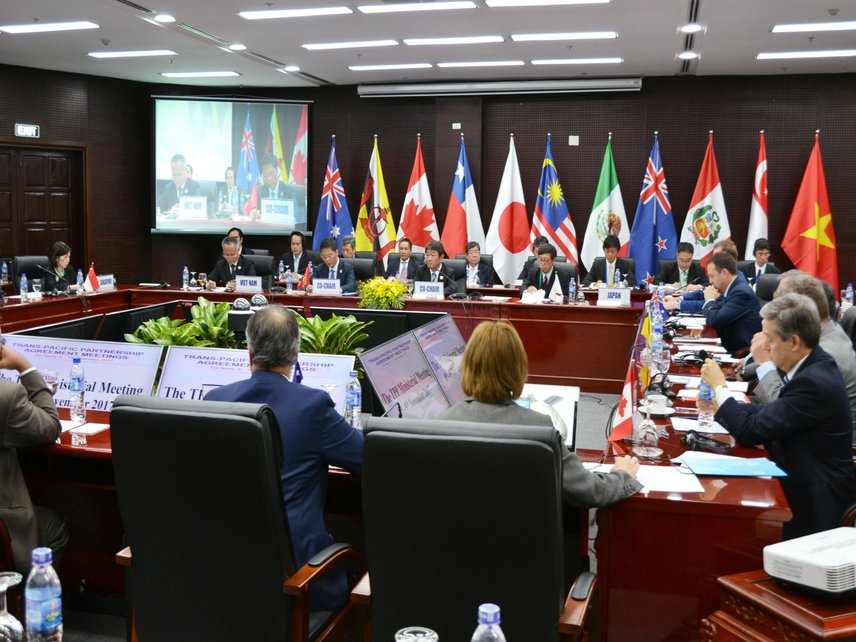America's Exit May Have Improved the Trans-Pacific Partnership, but Not for America
The pact is better without American influence-but now we won't enjoy the benefits.

Donald Trump may have pulled the U.S. out of the Trans-Pacific Partnership, but the trade deal didn't die: Last Saturday in Da Nang, Vietnam, the 11 remaining countries announced that they had agreed on the core elements of the pact.
Known officially as the "Comprehensive and Progressive Agreement for Trans-Pacific Partnership" and colloquially as TPP 11, the deal removes many tariffs and other barriers to exchange across borders. That said, it would be better described as managed trade than free trade. Free trade in the ideal sense wouldn't require a 5,500-page agreement, let alone some of the provisions that worked their way into that document.
Interestingly, America's exit has meant the suspension of some of the more egregious of those provisions. It was the U.S. that pushed the document's original rules for intellectual property, which have been criticized for maximizing copyright terms and eroding privacy rights. Similarly, the U.S.-proposed approach to pharmaceuticals would raise the cost of medicine (and restrict rather than free trade) by extending a patent by 20 years when a new use is found for a drug.
The some of the agreement's Investor-State Dispute Settlement clauses have also been suspended. These would have allowed foreign corporations to sue countries if their investments are affected by the home government's policies, an idea that has come under fire from multiple directions: Liberals see it as an appeasement to corporate power, conservatives claim it will weaken national sovereignty, and libertarians have argued that it creates special legal rights while doing little to liberalize trade.
Without Washington in the mix, the TPP is a simpler and in important ways better agreement. On the other hand, now the average American won't receive any of the benefits. According to a 2016 report from the International Trade Commission, both agriculture and beef stood to gain substantially from TPP, as did the services sector of the American economy. And American farmers will be put at a disadvantage if their products face tariffs that Canadian crops won't.
The revised deal will not have the impact on global trade that the original would have had. With the United States' involvement, the agreement would have encompassed 38.2 percent of global GDP. Without the U.S., the figure is 13.5 percent.
Yet TPP 11 would still represent a change in the geopolitical landscape. "Without the United States in the TPP, and with no real promise of new trade agreements for the next few years, the economic center of gravity will continue shifting across the Pacific," says Dan Ikenson, director of trade policy studies at the Cato Institute. "I think it's better for the world (including the United States) that TPP-11 proceeds because the United States is no longer a reliable champion of liberalizing trade through the adoption of sound rules."
"The world will move on, even if we're stuck in neutral," says Clark Packard, federal affairs manager and policy counsel for the R Street Institute. "Hopefully we'll eventually come to our senses and rejoin." Ideally without dragging any bad ideas back into the mix.


Show Comments (15)